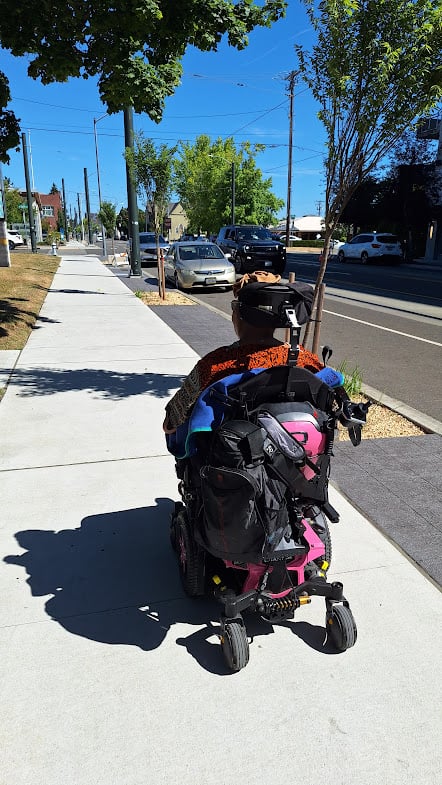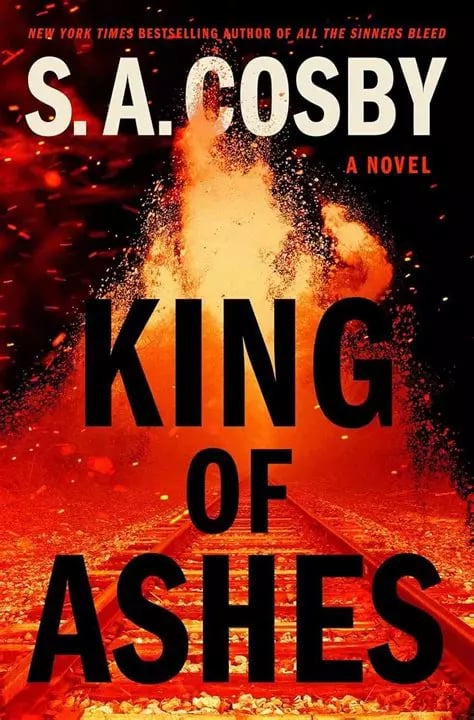Lessons From the My Mom's Church & Summer Reading

Greetings from the Great State of Washington,
It’s been a minute.
Given how regimented my schedule normally is, summers home feel weird. I mostly spend them sleeping in a series of borrowed and rented beds (five so far) and driving borrowed cars around my own hometown. I spend the majority of my days sitting with my mom, trying to take some weight off the shoulders of the usual caretaker, my adult niece. I take her on walks, or accompany her to medical appointments, then around six, I shift to either decompressing in our summer rental or connecting with friends at one of the old haunts, most frequently this summer 1111. Then, several times during our stay, we head down to my in-laws where we do roughly the same routine with Hope’s parents, minus the 1111 part.
We’re parenting our parents a bit and with that time ebbs and flows differently.
The last three Sundays, I joined mom for morning service. It’s the church I attended as a kid. Everyone looks greyer, a reminder of the passage of time. People I knew at the church when I was a kid are old, and everyone who was old is no longer with us.
Most of the congregation are widows and widowers. My mom is an elder in the church and readers likely know about her long recovery from an accident in 2021. The pastor is battling pancreatic cancer. One of the deacons had a diabetic amputation and is in a wheelchair. Another deacon joined us remotely for two weeks because he was caring for a loved one who suffered a stroke in California. The piano player passed, I think during the pandemic, so they sing acapella. But none of that matters to them. There’s a kind of joy in the room when they gather—something that quietly reminds you what really matters. Think about how close you are with the people in your favorite group chat. Now imagine a community that’s been meeting, in person, in the same space since the 1960s.
It felt good to sing familiar songs and see familiar faces. They all say I “look the same.” Hell, I wish. Mom is now the matriarch of the church in the way that Sisters Giles, Crawford, and Hankerson were when I was a kid.
Listening to the prayers and lamentations of a room full of Black people, from the Silent Generation will do some things for your soul. Most of them were born in the South during (or right after) the Great Depression and lived through the Civil Rights Era. They are “poster elders” for the Great Migration and over the last four decades have witnessed our retreat from the gains and promises made to them in the 60s.
One of the parts of the service that sticks with me each Sunday is the litany. It's a responsive reading. One of the ministers reads a passage, then the congregation collectively reads the response and they go back & forth. This week was about mercy and it hammered the importance of empathy in your faith walk. Previously, they read about peace. That litany hit me with its specific language on decolonization, economic justice and sovereignty for African states, and enduring peace in the Middle East.
I think when most people envision protestant Christianity today they think of sweaty, ultra-rich televangelists in their mega churches. Or they picture an American evangelicalism that seems more committed to promoting the GOP platform than living out the Beatitudes and the Sermon on the Mount.
This ain’t that; this ain’t even close.
These are my living ancestors, with a longitudinal view of where we’ve been. Given the history of the Black church in America, and this congregation in particular, the emphasis on empathy, justice, and being thankful to God for bringing you through trials hits like a brick.
Ready for some whiplash???
Let’s close out this week with summer reading updates.

Since we last corresponded, I finished King of Ashes by SA Cosby. The story centers around a trio of siblings. The protagonist, Roman, is a financial advisor to the rich and infamous in Atlanta. His younger brother, Dante, is absolutely not built for a criminal life but can't seem to stay out of it. And their sister, Nevaeh, is the rock of the family and helps run the family's business, a crematorium, ergo the titular Ashes.
It is Cosby’s best novel to date.
I've spent the better part of two weeks trying to figure out how to write about this book without spoiling it and I can't do it. Just read it!
The characters are deeply fleshed out and since each of his novels takes place in the same fictional towns in Virginia, Cosby is a master of his setting. If you've read any of his other books or books from other authors in the genre (I'm really trying my best not to say too much here) it will reward close reading.

I also re-read Naomi Klein's 2007 book The Shock Doctrine. As an aside, it repeatedly caught me off guard to see the Bush Administration referred to in the present tense.
I first read The Shock Doctrine during my first year of teaching, but revisiting it now, I’m struck by just how eerily prescient Naomi Klein was about the world we live in today. Her central argument is that neoliberal policy makers keep a set of deeply unpopular reforms in their back pockets, waiting for a moment of crisis—when people are too disoriented or desperate to resist. Then they move quickly, imposing those changes on a stunned public. The book’s power comes not just from its thesis, but from the case studies that bring it to life: Chile under the brutality of Pinochet, post-Katrina New Orleans, and Russia after the collapse of the Soviet Union. Reading it again, the parallels to our current moment are impossible to ignore.
In the two decades since the book was published, self-dealing has become normalized, and we’ve grown disturbingly comfortable with blatant conflicts of interest. In his time, Jimmy Carter famously had to divest from his peanut farm because that was the ethical expectation. Years later, Dick Cheney refused to sell his Halliburton shares when he became Vice President, then spent eight years in office awarding contracts to the company he once led. Fast forward to today, and the current president is issuing his own crypto tokens—tokens foreign nationals are buying, in an effort to influence him. That’s a whole rabbit hole I could go down, but I’ll hold off for now.
Like King of Ashes, though, this book is worth your time.
One final note: I’ll be interviewing author Jordan Harper for the podcast on Friday. He’s the writer behind Everybody Knows, The Last King of California, and She Rides Shotgun—the last of which has been turned into a major motion picture set to release on August 1st. If you have questions for him about his books or the film, feel free to hit inbox.
Our time in America is winding down, but we should have one more newsletter before we take off for Vietnam.
I’ll talk to you then.